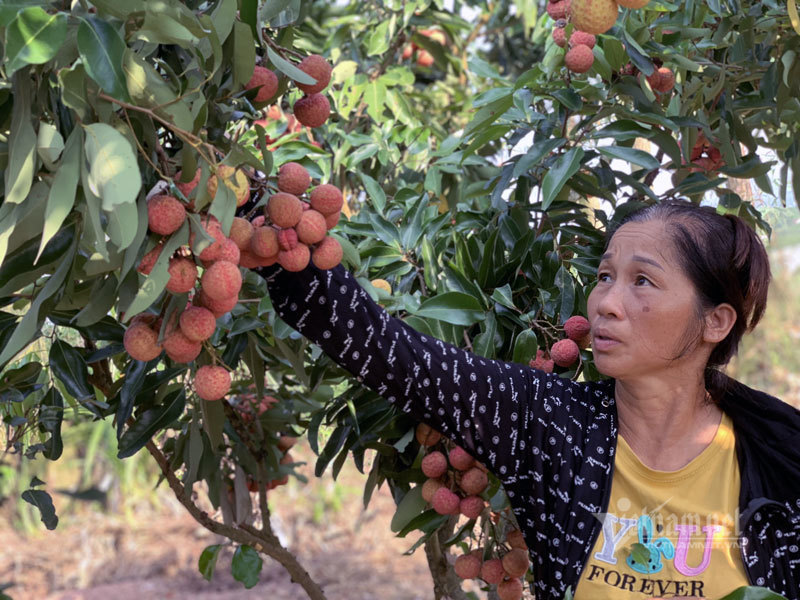And she was shocked by the results: her number of followers increased by 70 times, and the number of orders by 15 times, and revenue by 14 times.

Livestreaming to sell goods on marketplaces began developing in 2019. After the pandemic broke out, it became a growing tendency.
In Luc Ngan district in Bac Giang province, the homeland of litchis, farmers tried this effective selling method. Because of Covid-19, Chinese merchants could not visit to collect litchis last harvesting season. In such conditions, selling litchis online was a solution.
E-commerce has become increasingly common among urban traders in the last three years. However, it remained unfamiliar to rural people but they now have discovered benefits from this business mode.
Thanks to livestreaming, Chinese merchants at home in China could see litchis, assess litchi quality, and make deals. The scenes of farmers scanning bunches of litchis with smartphones and talking to foreign partners have become common.
More recently, in the ‘Ngay cua lang dua Ben Tre online’ (Day of Ben Tre Coconut Village) program, nearly 2,000 products were sold within one hour of live-streaming, which attracted 10,000 viewers.
There are no official statistics about the number of farmers using livestreaming as a tool for selling products, but it has become increasingly popular. Livestreams on social networking or e-commerce platforms in Vietnam are attracting hundreds of thousands of views a day.
Nguyen Thanh Hung, chair of the Vietnam E-commerce Association, said the recovery period after the pandemic was the right time for the online business season.
Many marketplaces have welcomed farmers who have brought their products there to sell online. Vietnam Post has a postmart website reserved for farm produce trading. Thai Nguyen tea, Hung Yen longan, Seng Cu (Yen Bai) rice, Phu Quoc fish sauce, Lao Cai honey and Muong Khuong chili sauce are available there.
When it started in the Vietnamese market, online marketplace Shopee said that the ratio of urban and rural markets would be 50-50. It often organizes training courses to support merchants in rural areas to sell their products.
Meanwhile, Lazada provides support customers to open booths, offers free lifetime commissions, and organizes free online sales training. And Tiki has tried to bring farm produce and fresh food to the market place.
Thu Ky

Vietnam’s e-Commerce revenue to exceed 15 billion USD this year: Association
Vietnam’s e-Commerce growth reached 32 percent last year and averaged about 30 percent annually since 2016, according to a report by the Vietnam e-Commerce Association (VECOM).

E-commerce gives impetus to woodworking sector
In the rapid development of e-commerce, online stores and factories are one of the solutions with which enterprises can cope with the prolonged Covid-19 pandemic while laying a foundation for digitalized business